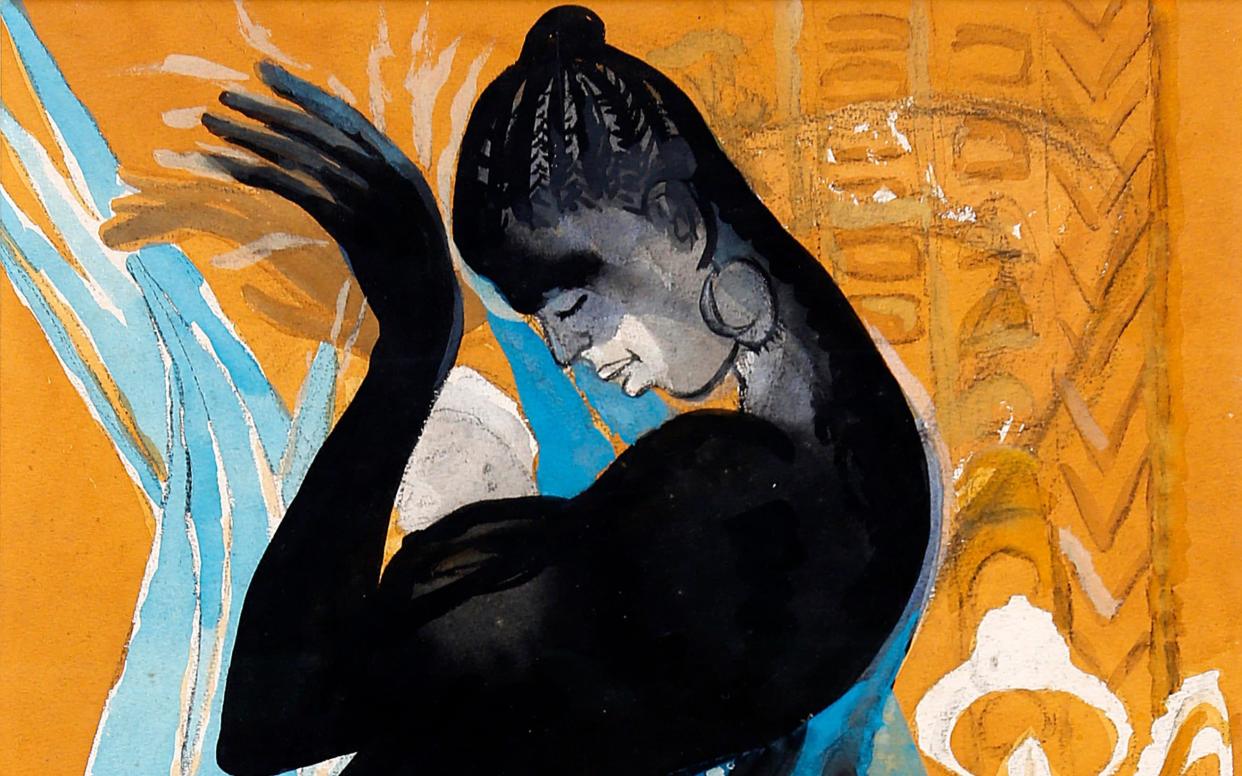The real-life art fair shining a light on African artists at Somerset House

This is Frieze week in London – normally a bustling time of year with a host of art fairs. Due to Covid-19, though, these fairs – Photo London; the Pavilion of Art & Design and, crucially, both Frieze and its Old Masterly offshoot, Frieze Masters – have migrated online. It’s not surprising; since March, every major international art fair has been cancelled.
However, one London seasonal regular is going ahead physically, albeit in reduced format: 1-54, the fair for modern and contemporary African art at Somerset House. Attendees will be required to wear masks, observe social distancing and follow a one-way system, but director Touria El Glaoui says it was the determination of the galleries that kept it alive.
Being relatively small with a core of London-based galleries, the fair also benefited from a degree of flexibility offered by Somerset House in terms of cost and payment terms. Predictably, the event has a political edge. A project called Say My Name tunes into the Black Lives Matter movement with works by a variety of artists (priced from £10,000) describing police abuse and violence.
Another is a display of photographs of Syrian refugees and asylum seekers by Leila Alaoui, the French-Moroccan activist artist who was killed in a terrorist attack in 2016, aged just 33. The presence of African art in the capital is boosted by two auctions. Sotheby’s 120-lot sale on Friday is its most valuable yet with a target of near £6 million.
Bonhams’ auction on Thursday is half the size and with an estimate nearer £1 million. Leading the Sotheby’s event is the established Ghanaian El Anatsui, with one of his glittering bottle-top tapestries priced at £800,000. But moving up the ranks fast is Ben Enwonwu, a stylised figurative painter and sculptor, who died in 1994.

Femi Lijadu, one of Nigeria’s most respected art collectors, bought his first Enwonwu, a portrait, in the Eighties for about £200. He now owns 40 works, he says, and that portrait could be worth "tens of thousands”, or maybe more. There are 15 works by Enwonwu at auction this week carrying estimates from £10,000 to £180,000, sums he would never have dreamed of.
While he never got rich from art, it is the children of the friends who supported him who benefit from the rise in prices. Five of the Sotheby’s examples came direct from the artist and were passed down in a family who worked in Nigeria in the Seventies. The most electric price rises though, have been in the African-American and young contemporary categories.

Bonhams and Sotheby’s, for instance, both have works by 36-year-old Vienna-based Ghanaian Amoako Boafo, who, three years ago, could hardly get £100 for a painting. His Egon Schiele-influenced work was then spotted on Instagram by successful American artist Kehinde Wiley, who recommended him to all his galleries, and quickly the word went round that Boafo was hot.
One painting recently fetched £675,000, triggering his Los Angeles dealer Bennett Roberts to point a finger at speculators, “wealthy white collectors who are making huge money off of African artists during Black Lives Matter”. Although it is not holding an auction, Christie’s is staging an exhibition, which features one work each from the dealers at 1-54 – a good option for those who can’t get a ticket.

Numerous London galleries are also showing artists of African descent including Gagosian, which gives African-American painter Nathaniel Mary Quinn his first London show. Quinn’s Baconesque collages have risen from £10,000 three years ago to a record £212,500 at auction last year.
The African journey continues at Frieze online where the viewing rooms and talks are dense with African-diaspora artists and thinkers. Perhaps the most remarkable is the selection of works by Enwonwu with the Kó gallery from Lagos (£30,000 to £300,000) – the first time he or the gallery have featured in an international fair of this standing. Kó is run by Kavita Chellaram, who started the Arthouse auctions in Lagos in 2007 which were at the helm of the Enwonwu price revolution.
Chellaram no doubt believes he might achieve greater recognition through Frieze Masters, with its global brand and track record of attracting international collectors and museum curators. Gradually, African art is filtering its way into the mainstream.
Sign up for the Telegraph Luxury newsletter for your weekly dose of exquisite taste and expert opinion.
